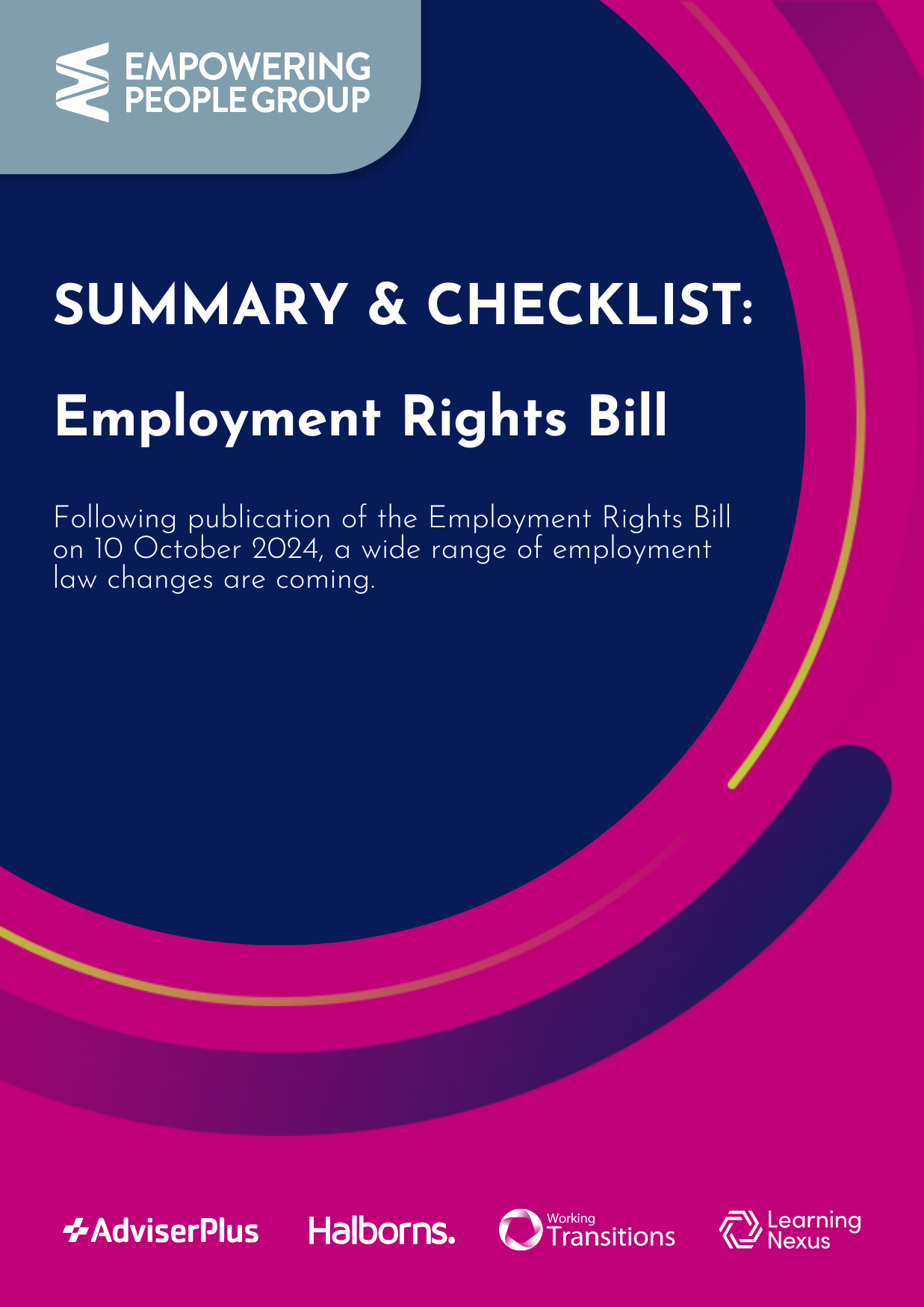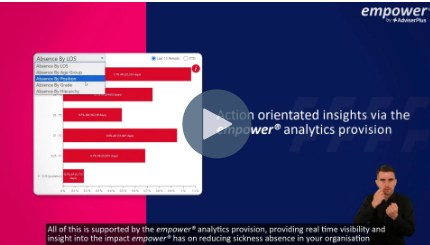Understanding day-one rights: A major shift in UK employment law
The Employment Rights Bill will bring changes to employment law in the UK, and new day-one rights to safeguard workers, eliminating the current service requirements for certain protections. This means employees will have immediate rights from day one.
We analysed our clients’ data to estimate the potential impact of day-one rights on probation cases. Even with changes postponed until 2027, we expect a significant surge in case management activity as businesses prepare.
Our analysis identified a potential rise of up to 230% in activity on probation matters, potentially requiring 13% more employee relations (ER) advisory resources. This means one additional advisor for every eight currently employed. If further legislative changes are introduced, ER advisory demand could rise by up to 25%.
Organisations must start reviewing their HR policies, technology, and managerial capabilities early to meet these new legal obligations. This blog explores what these changes mean for businesses and employees.
What are day-one rights in the Employment Rights Bill?
| In the UK, employees must meet specific service thresholds to qualify for certain rights:
Labour’s Employment Rights Bill proposes scrapping these waiting periods, granting immediate rights from the first day of employment.
Here are some key highlights of the day-one rights reforms:
|
Day-one right to unfair dismissal
Stefan Mars, Head of Legal at Halborns, states, “One of the most impactful changes is the elimination of the two-year service requirement to claim unfair dismissal. Under the new Bill, employees will have the right to challenge unfair dismissals from day one. The Bill also introduces a ‘light touch’ procedure for dismissals during probationary periods, where employers are encouraged to hold a meeting to explain their concerns and allow the employee to be accompanied by a trade union representative or colleague.”
For employers, this change means a need for more rigorous probationary management. Without the buffer of a two-year qualifying period, businesses must ensure that managers are well trained in setting clear objectives, conducting performance reviews, and documenting concerns throughout the probationary period. Clear responsibilities and performance metrics for people managers should be established to ensure accountability in managing employee relations matters effectively.
Jane Bradshaw-Jones, HR Business Partner at AdviserPlus, adds, “This is such an important point for organisations to consider because it goes far beyond policy updates. Many accidental managers are not well trained and aware of their responsibilities when it comes to probationary periods, and that is going to need to change.”
“Thorough training and clear accountability are required to ensure managers are setting appropriate objectives and conducting appropriate reviews during the probation period to thoroughly assess whether the employee is fit for the future. This will put a significant additional workload on managers, and they need to be prepared and well supported.”
Day-one right to statutory sick pay (SSP)
The current system for statutory sick pay (SSP) includes a three day waiting period before employees can receive SSP, and employees must earn an average of £123 a week to qualify. The proposed Bill eliminates these requirements, making all employees and workers eligible for SSP from the first day of illness.
Jane stated, “This will be a significant change. From an employee’s perspective, it has the potential to offer improved financial security during periods of illness and reduce the stress of being off sick, knowing they will be paid from the first day of their illness.”
“The heightened costs and complexity for employers could lead them to think about reducing their workforce or implementing stricter sickness policies. Employers will need to update their payroll systems to comply with the new rules and ensure that employees are paid accurately.”
Effectively managing sickness absences involves balancing employees’ rights with business needs. To simplify this, managers should be empowered to support employee well-being, address health concerns early, and understand their obligations under SSP rules. Investing in HR technology that enables this can also enhance this process.
Day-one family rights
The Employment Rights Bill will allow employees to take parental leave, including paternity and adoption leave, from their first day of work, removing current service requirements. This creates new challenges for managers.
Managers will need to understand the rules around family leave, making it important for businesses to provide the right HR tools and training. Balancing team productivity, following the rules, and handling sensitive conversations about family rights are key to creating a positive work environment. Therefore, companies should start preparing to help managers adjust to these changes.
Looking ahead: The impact of employment right reform on employers
Changes in UK employment laws will have a significant impact on the relationship between employers and employees. The immediate availability of protections such as unfair dismissal and statutory SSP may lead to an increase in tribunal claims, higher rates of sickness absences, and pose administrative challenges if not managed properly. Even though these “day-one rights” won’t be fully enforced until 2026, businesses should take proactive measures to prepare without delay, including:
Legal and HR policy updates
Employers should review and consider what changes are needed in employment contracts, probationary processes, and HR policies to comply with the new legislation. This includes extending probationary periods and updating policies on dismissals, sickness management, and parental leave, as well as ensuring flexibility in fixed-term contracts.
The Bill also emphasises the government’s commitment to enhancing workers’ rights and aims to create a fairer workplace. Although it does not explicitly mention “equal pay” like previous legislation such as the Equal Pay Act, the focus on gender equality and the gender pay gap indicates a strong intention to address pay disparities through proposed action plans.
Explore how we can help you review your equal pay policies.
Line manager training and support
Empowering managers has become essential in today’s workplace, where they must manage mental health challenges, hybrid work environments, and evolving employment laws. By strengthening their people management skills, organisations can:
- Boost employee engagement and experiences
- Improve performance
- Reduce legal risks
- Strengthen company culture.
To enhance accountability among line managers, comprehensive training is vital. Many managers lack formal training in people management, so effective programmes are needed to build their confidence in handling key workplace issues, such as performance reviews, probation, and managing sickness absence.
Investing in scenario-based training empowers managers to effectively navigate complex employee relations issues, mitigating business risks which can result in significant cost savings and increased business efficiency.
Download our whitepaper, ‘Employee relations 2.0: Manager empowerment – From accidental to accomplished’, to learn more about how you can prepare your managers for these challenges and create a stronger, more effective leadership team.
Proactive workforce planning and enhanced employee relations processes
With the removal of service requirements, employers must evaluate their workforce management strategies as the Labour government expands workers’ rights. Effective communication with employees is essential.
By leveraging HR data analytics, employers can identify and address workplace issues that impact employee engagement, such as communication breakdowns, unclear performance expectations, and insufficient support for employee rights.
Investing in a user-friendly, self-service case management system like empower®, will enable managers to handle personnel matters confidently and effectively, at the right time. Featuring templates, guided journeys, and alerts, empower® helps enhance leadership skills in areas such as:
- Performance reviews
- Sickness absence
- Probationary reviews
- Grievances
- Disciplinary processes.
Regular discussions between managers and employees creates collaboration which helps resolve personnel issues before they escalate. By combining proactive workforce planning with improved employee relations processes, businesses can better navigate the evolving landscape of employee rights while maintaining a positive work environment.
Book a demo to find out more about how empower® can help.
Start preparing for new employment law now
Download our free ERB summary and tracker created by experts from our legal division.
Subscribe to our newsletter to keep an eye out for further updates as more details emerge on the timing and specifics of these changes.

